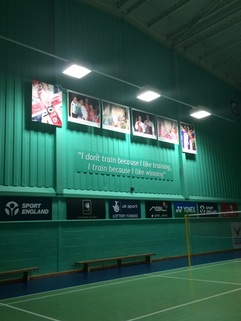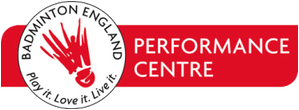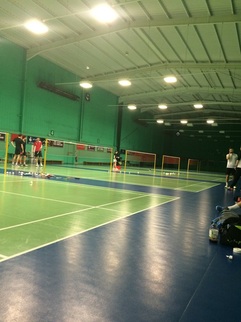
[...on whether he coaches the players to quickly process the information or focus on reactions...]
With these players it is all about reaction speed. From my point of view, I want to expose them to various different scenarios so they can quickly recognise them when in competition. Ideally I want them to play with an empty head, the sheer speed of the game at this level makes it hard to pick up information, process it and then make decisions. I try to provide the environment where they can build that experience and context to quickly recognise scenarios and react to them.
[...on how the best in the group can continue to improve to the level required for international competition...]
As you can see the majority of the session has been based around gameplay in different situations. Often we overload the opposition so it may be 3v2. This way they have to react quicker, work harder, they have less of the court to aim for etc. However it is also of benefit to those in the 3 too, playing certain shots or working on their own footwork against good opposition. You can see how as they fatigue the footwork starts to decrease or with the younger players everything is coming at them much quicker than they are used to so they are just trying to get it back rather than transition into attack.
How do you establish the goals for their improvement over the course of the year and how does this session fit within them?
The goals are in place both for the group and individually. We highlight Technical, Tactical, Physical, Mental and lifestyle goals over the course of a year which are recorded in the players' individual planners. So much of their time is spent travelling to and from competitions so that has to be accounted for too. We also work on Group Themes where we may spend a month looking at one particular aspect before moving on. For those players who podium then we are looking at it in the context of a four year cycle for the Olympics - we have certain targets that we set along the way to ensure that they are on track.
Recently I was at Denstone College where the big theme for their athletes was Challenge and Support. I imagine similar must apply here with players coming from all over the country to train and prepare for competitions etc?
Yes, and that's particularly relevant with our younger players who come here at 18 or 19. They are on the verge of adult competition and have come here having experienced plenty of success growing up in national and international junior events but not necessarily with the same attention to detail for their training, their strength and conditioning etc. Players often come in with some clear flaws to their game and bad habits that have developed whilst growing up. It hasn't stopped them winning in the younger age groups but can really hinder them going forward. The process of fixing those bad habits can be really tough for them - in the short-term it will effect their performance, leading to frustration and maybe confidence issues. So it is about providing that support and we have a Psychologist and Lifestyle Advisor at hand for them who can help with the psychological side of things in both performance and settling into a new area away from home etc.
You used to play at this level too, how was the transition from playing to coaching?
It was difficult in many ways. It helped me slightly that my last year of playing I was also involved in coaching so it made the transition less stark. But the mindset is so different - you have to move from being selfish to selfless. Initially I was incredibly vocal as a coach, reacting to everything. I knew I couldn't carry on that way and deeply considered what type of coach I wanted to be and learnt to adjust my behaviour more in line with that vision.
When I'm coaching, I'm very much in that coaching mindset rather than playing but find it interesting in dealing with the stress of high level occasions - where is the outlet for those nerves, concerns, frustrations etc. When playing, you go out, make a tackle then feel fine and you're in the game. I think there needs to be a detachment when coaching?
I think it is about embracing the environment and seeking to thrive within it. Also just focusing on the elements that you can control so that your mind isn't cluttered with useless information or emotion.
How have you managed your own coaching development and how do you continue to improve?
I did the coaching courses originally with some resistance but knew they had to be done. In 2011 I was selected for the UK Sport ECAP (Elite Coaching Apprenticeship Programme) which I thought was very good. I took a lot from it, probably the most useful was my mentor on the course who I still speak to regularly. It is useful to have that sounding board to bounce ideas off and he will often try to present a different point of view for me to consider. Sometimes he'll forward through a research paper that may be of interest too and having those different perspectives has been really useful in helping me to develop.
You are within a high pressure environment and have coached at Olympics etc - how do you find a way to switch off so that it doesn't consume you?
There is an element of experience to it and getting to know and understand myself. I know now how much sleep I need to function properly, I know how to energise myself and likewise switch on/off. That self-awareness is really important. The coaches and players here have done personality profiles and that was interesting in getting a guide as to how I can work on being comfortable in situations I wouldn't normally enjoy. Those profiles have also been great in getting to know our athletes, which is important for a coach - to know what motivates them, how they learn best, how they react to different situations, how pressure might change their normal behaviour etc. Pressure response is a fascinating topic. In terms of switching off then when coaching here at home having two kids is a good way to focus on something different! When at competitions I always find exercise and music good too. It is hard to have your mind cluttered working overdrive whilst in the gym and singing along to music!


 RSS Feed
RSS Feed
